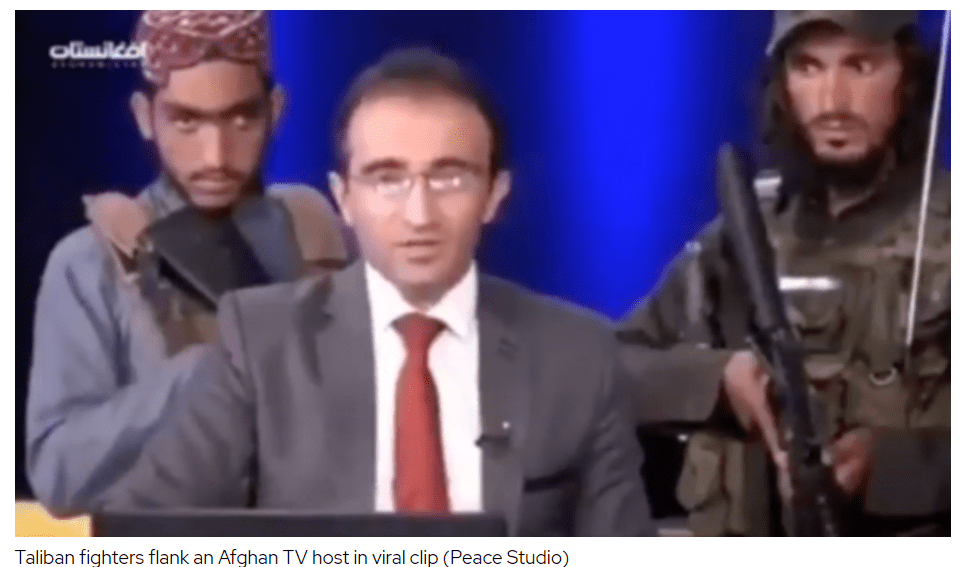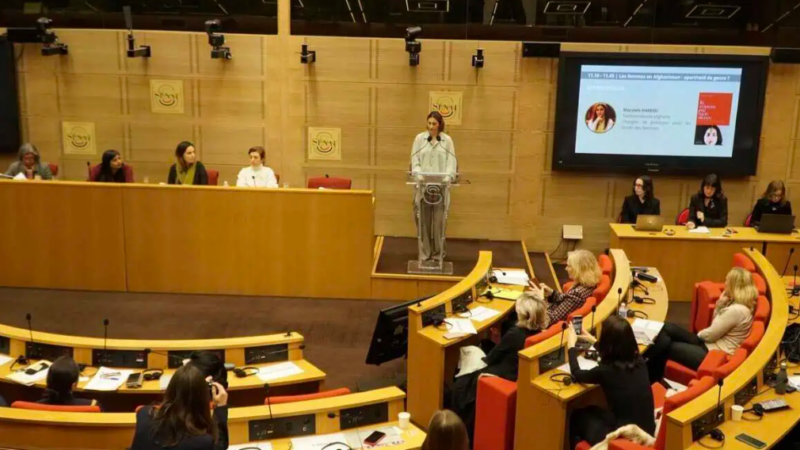Torture and killings of journalists run rampant under Taliban rule

All those promises about respecting human values made earlier by the Taliban are going for a toss. Since the Taliban has taken over Afghanistan, there have been gross violations of basic human rights, and those who are reporting the developments – media personnel—are being harassed, tortured, and killed. Journalists are scared, feeling hopeless as the spirit of journalism they built in the past two decades is ceasing to exist now. There has been a change in the content being shown on private TV channels. Critical news bulletins, political debates, entertainment and music shows, foreign dramas are replaced with lame programmes that are tailored to the Taliban government.
Things have changed dramatically since the Taliban began its military advances after the US announced the withdrawal of its troops from Afghanistan. Dawa Khan Menapal, the director of Afghanistan’s Government Information Media Center in Kabul was killed in the first week of August. Two days later, journalist Toofan Omar of Paktia Ghag Radio was murdered by the Taliban fighters. Soon after Kabul fell, Taliban fighters began looking for journalists—many were tortured while some were killed.
There are incidences of Taliban fighters snatching cameras and equipment from journalists and even robbing them.
Journalists covering protests by Afghani people are being detained and implicated under false cases under draconian laws.
Taqi Daryabi and Nematullah Naqdi, journalists from Etilaatroz newspaper, were beaten mercilessly by Taliban fighters for just covering a protest event. They were taken to the police station, where they were assaulted brutally. “Using sticks, police sticks, rubber – whatever they had in their hands. The scar on my face is from shoes where they kicked me in face. I was unconscious after that so they stopped,” recalled Daryabi.
He said the little hope he had for the future of media and journalists in Afghanistan now was destroyed.
Many journalists have gone into hiding, deleted their social media accounts and their news stories from the past, which were critical of the Taliban. Pulitzer Prize-winning photojournalist Massoud Hossaini managed to evade the Taliban’s manhunt and reached the Netherlands. He said news media in Afghanistan was in danger since the Taliban kills one when they capture one. “It is going to be really, really bad. They are trying to kill the media but they are doing it slowly,” he said.
Alireza Ahmadi, a journalist with newspaper Afghanistan-e Ma was not fortunate like Hossaini. He was killed in a Taliban assault while on the way to Kabul Airport, from where he was planning to move to Rome.
There are many journalists like Ahmadi, who were killed by the Taliban. The Taliban can harm journalists by claiming that journalism and news items violate Islamic rules and values. “District-level commanders and street fighters still live in 1996 and know nothing about media freedom,” said Kabul-based journalist Ali, who has gone into hiding.
While journalists are forced to flee from the country, the Taliban has asked women journalists to stop working and stay home. Two women news TV anchors were sent off-air at the public broadcaster Radio Television Afghanistan by the Taliban soon after it declared independence.
As per the Reporters Without Border, a United Nations- recognised non-profit, 4,940 employees were working in 108 news outlets in Kabul in 2020, and 1080 of them were women including 700 journalists. Now, the number of women journalists has slumped to below 100.
News anchor Aaisha said her life changed suddenly after the Taliban gained Kabul. “For many years, I worked as a journalist … to raise the voice of Afghans, especially Afghan women, but now our identity is being destroyed and nothing has been done by us to deserve this. We see silence filled with fear of the Taliban around us,” she said.
Many media outlets have shut since Taliban captured Kabul. Yet, there are a few media houses in Afghanistan, which have decided to continue doing journalism despite the financial crunch, hostile environment and threats from the Taliban. Tolo TV and Pajhwok news agency are some of the few news outlets, which are exploring alternatives like working from overseas to ensure happenings in Afghanistan reach everyone.
Saad Mohseni, the founder of Tolo News, expressed determination that Afghan journalists would stand firm despite the risks and threats from the Taliban. “They’ve worked in this environment for 20 years. They can deal with warlords and thugs, government officials and now the Taliban,” he said.
A group of 150 Afghan journalists has asked the UN and the international community to protect them from the threats being issued by the Taliban.






